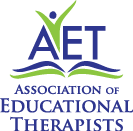AET Professional Workshop
The Neuropsychology of Written Language Disorders:
An Introduction to the FAW
Presented by: Dr. Steven G. Feifer
January 28, 2022
Join us as we explore the neuropsychological underpinnings of the written language process. For years, educators have struggled to cultivate more effective writing skills in their students, as well as remediate written language disorders. The ability to generate and produce written language requires multiple linguistic skills involving both phonological and orthographical functioning (the elementary components of language), efficient word retrieval skills, executive functioning skills to arrange our thoughts and ideas, and working memory to hold our thoughts in mind long enough for effective motor skills output. A breakdown in these fundamental cognitive, linguistic, or motoric processes can result in various subtypes of written language disorders.
Attendess will be able to:
- Define the term dysgraphia and list key behavioral signs of written language dysfunction in both elementary and secondary aged children.
- Explain the neural architecture responsible for written language development in children and identify key brain regions responsible for the organization and production of writing skills.
- Describe three specific subtypes of writing disorders and target key interventions for each subtype.
- Use the Feifer Assessment of Writing (FAW) as a more effective diagnostic tool to screen, diagnose, and remediate written language disorders in children.

![[sponsor logo]](/templates/common/images/sponsors/westmark-school.jpg)
![[sponsor logo]](/templates/common/images/sponsors/charles-armstrong-school.jpg)
![[sponsor logo]](/templates/common/images/sponsors/mc-lean-school.jpg)
![[sponsor logo]](/templates/common/images/sponsors/ucsc-logo.jpg)
![[sponsor logo]](/templates/common/images/sponsors/schwab-logo.jpg)